Some phone calls may look like they are from a “Restricted,” “Private,” or “Unknown” number when the caller purposely masks their caller ID. This keeps the recipient from finding out or tracking the mobile number. Privacy is the reason some people such as law enforcement, businesses or scammers use restricted calls. This is an issue for parents who want to keep their children safe in this world of fast communication. Some people might feel these calls are nothing to worry about, but they can actually pose huge risks. Therefore, it is important to know what is a restricted call, why it is risky and how to safeguard your children from them. This article will cover what a restricted call means, explain its risks and offer steps parents can take to keep their children safe.
What is a restricted call?
When we talk about a restricted call, it is one that comes from a number that someone has concealed or blocked. Because of their methods, the person on the other end of the call may not be able to find out who the caller is. These calls are made by real people and often scammers that try to defraud you. Businesses also use restricted calls when they want to stay anonymous. Harassers and predators also choose to hide behind masks. Because the caller is anonymous, children might not understand how to react to these phone calls.
People frequently mistake restricted calls for private and unknown calls. Even though these terms may be used together, there are some subtle variations. Just as in a restricted call, when you get a private call, the caller’s number is deliberately hidden from you. Any number you do not recognize as you pick up the phone is considered an unknown call. A blocked number is when the caller stops their details from showing up on the caller ID. Although these terms can be confusing, they all mean that the caller’s identity is kept hidden.
Why are restricted calls a concern for parents?
Parents should be aware of the dangers associated with restricted calls. Since children have not been exposed to these before, they may not be aware of the risks. Here is why parents should be seriously concerned about restricted calls:
Scams
Scammers typically use restricted numbers to make it more difficult for people to uncover their true identity. They hope children will reveal what they think is harmless personal or financial information. Because children do not always understand fraud, they can easily become victims.
Scammers could claim to work for a common institution, such as a bank, a school, or a government department. They might ask for basic information, such as the child’s name and address, or essential details, like the social security number. Children might not realize who they are talking to and are more likely to speak.
Harassment
Harassment is also a serious issue that needs to be addressed. Someone who calls you back and forth starts a series of unwanted contacts. It could be displayed as constant calling, sending messages, or making threats. Because they do not know any better, victims may unintentionally encounter someone who wants to threaten, bully, or harass them.
Sometimes, those who harass children will use restricted phones to bother them and make them feel uncomfortable. If this type of harassment is left alone, it may cause emotional problems for the child.
Predators
Most predators attempt to remain invisible when interacting with children. Because the conversation is not open, they can hide information about their identities and what they mean to achieve.
Because they are still learning, it is a challenge for younger children to know when a call is harmful. Some kids might believe that everyone is friendly and do not see any signs that a situation is risky. Initially, predators behave normally and engage in basic conversations, but their true motives become apparent over time. Once a predator starts speaking with the child, they know many ways to groom them.
Report
Not all restricted calls are reported. Even if children notice something is off, they might be reluctant to tell anyone about it. Children may not realize the importance of reporting because they might be too afraid or ashamed.
Sometimes, a child does not recognize that the problem is serious and simply sees it as a temporary event. Unless properly guided, they may not take any appropriate action to protect themselves from these malicious restricted calls.
Shield your children from unwanted interactions using parental controls.
How to block restricted calls on your phone?
Luckily, there are some steps parents can take to block unwanted calls and keep their children safe. Most modern phones, including both iPhone and Android devices, can block or silence calls from unknown numbers. Mobile carriers also have similar choices for blocking restricted numbers.
Built-in Features on iPhone & Android
iPhone:
Tap the “Settings” app icon.
Go down to the “Phone” option and tap on it.
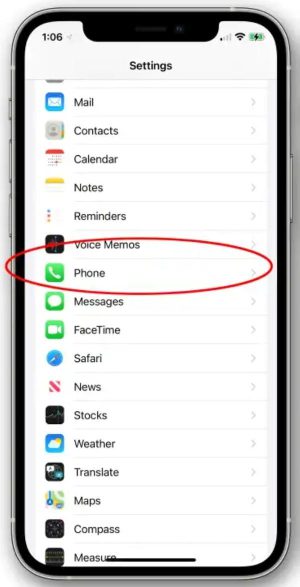


Tap on “Silence Unknown Callers.”
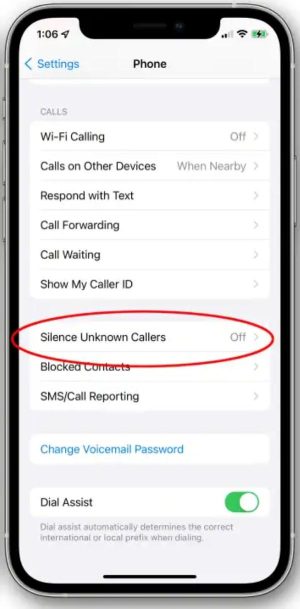


Toggle on “Silence Unknown Callers.”
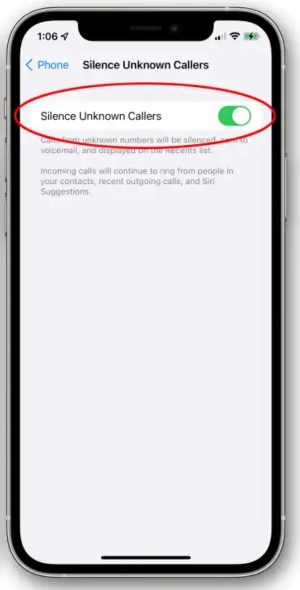


Android:
Tap the “Phone” button.
Press the three dots located in the upper-right corner, then tap “Settings.”
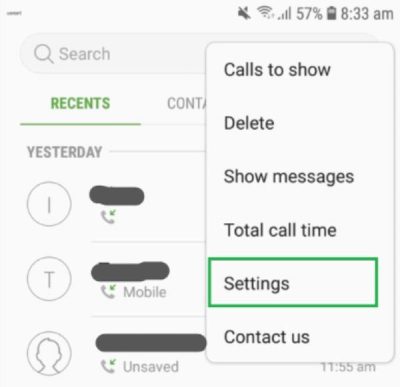


Press the “Block numbers” button.
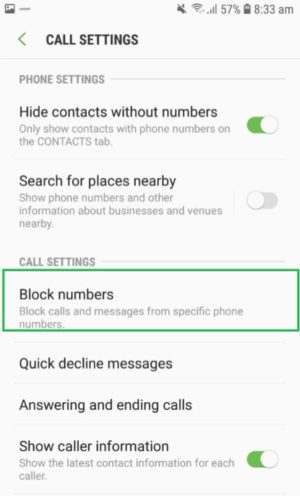


Toggle it on.
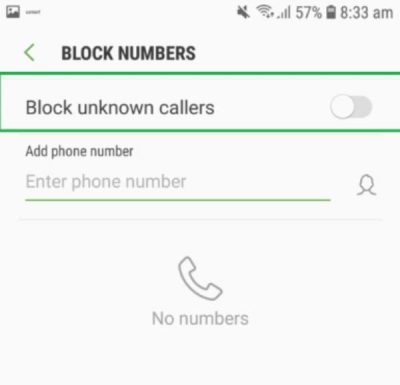


Carrier options
Besides built-in phone features, both AT&T and Verizon allow you to set up blockers for calls restricted by the Federal Trade Commission.
AT&T:
- Access your AT&T account by using its website.
- Click “Manage My Account” and then choose “Block Calls.
- You can use this feature to stop receiving blocked, private, and unknown calls.
Verizon:
- Open your Verizon account with your username and password.
- On the Verizon site, locate “My Verizon” and then pick “Manage Features.”
- Choose the option “Call Filter” to keep unknown and restricted calls from coming through.
By combining your phone’s built-in features and your carrier’s options, you can shield your children from unwanted contact.
The smart way to monitor calls on your child’s phone
Sometimes, basic blocking steps may not be sufficient, and you may need to try other methods to keep your child safe. That’s where third-party parental control tools, such as FlaskGet Kids, come in, offering special features designed for monitoring kids.
1. Call Monitoring:
With FlashGet Kids, parents can view all received and sent calls on their child’s phone. This way, parents know who their kids are talking to and watch out for anything suspicious. Call logs can easily reveal if private or restricted callers are contacting their child.
2. Contact Whitelist/Blacklist:
FlashGet Kids allows parents to set a contact allowlist and a contact blocklist. With an allowlist, only your child’s safe contacts can reach them, and unwanted numbers are blocked through the blocklist feature. As a result, only calls from approved contacts are allowed to be received on the child’s phone.
3. Real-Time Alerts:
Parents receive real-time alerts on their screens via FlashGet Kids. They are immediately informed about events so that they can react promptly. Such a feature is crucial in preventing any dangerous contact from callers with malicious intent.



What to do if your child keeps receiving restricted calls?
When your child receives restricted calls regularly, take action immediately. There are several steps you can take:
Check call history
Use the History feature in FlashGet Kids to view your child’s call log. You will be able to determine if the phone calls are coming from the same number or different sources. By reviewing the call logs, you may identify any recurring patterns that can help you determine the best course of action.
Report & block numbers
If you receive repeated calls from the same number, notify your mobile network provider. They provide the option to block or report unwanted restricted phone numbers. You can also prevent these numbers from calling by blocking them in FlashGet Kids so that they won’t bother your child again.
Contact the network provider or authorities
If a restricted number begins to threaten or harm you, do not tolerate it and address the issue appropriately. Contact your mobile network company to learn about additional blocking options. If it appears that the calls are coming from someone who is trying to exploit kids or who is involved in criminal activity, please contact your nearby law enforcement officials. Authorities might be able to identify the person behind the calls.
Conclusion
Restricted phone calls can be a cause of concern for parents. The callers may be scammers, harassers, or even predators; you never know. You can ensure your child’s safety by learning how to block these calls. You can do it by using your phone’s built-in features, contacting your carrier service, or utilizing advanced apps like FlashGet Kids. If you continue to receive unwanted calls, then contacting the authorities might be necessary. Parents should take all the precautions required to protect their children in today’s rapidly evolving digital age.

